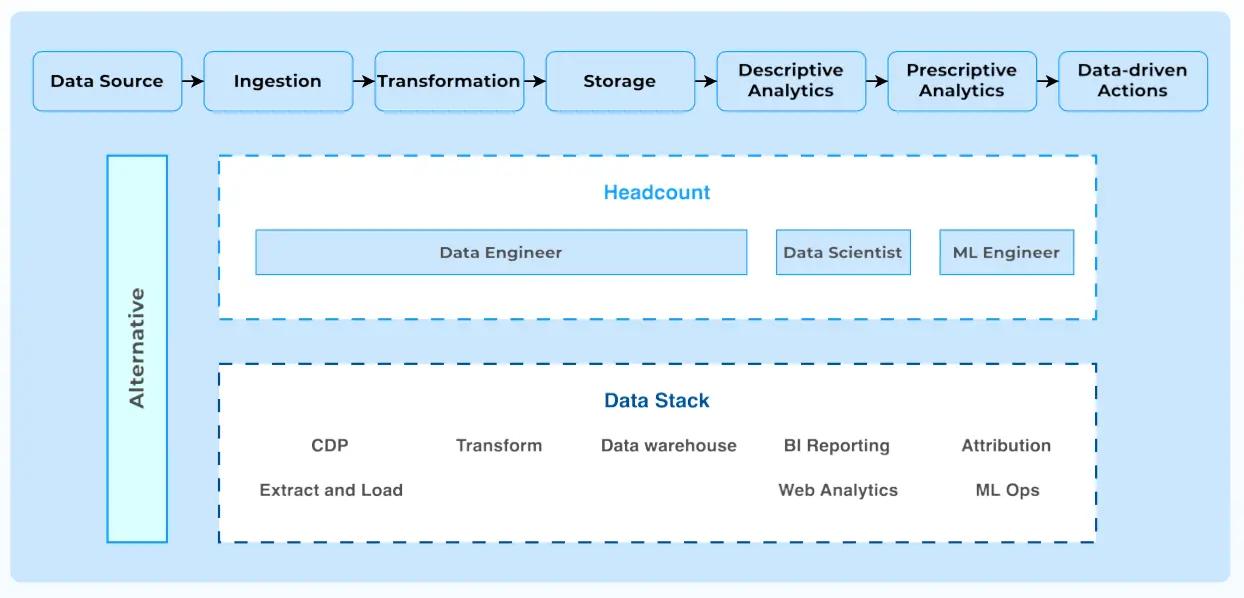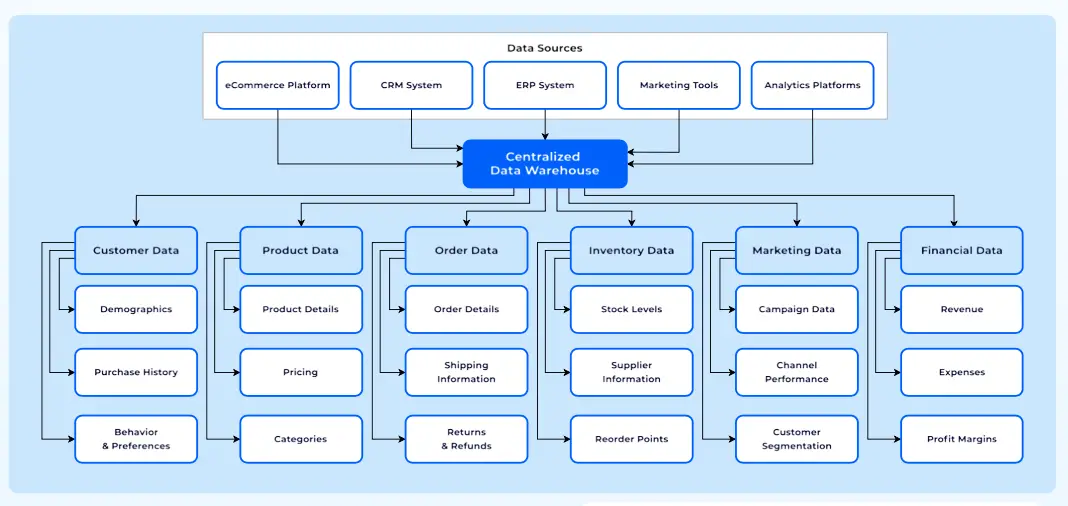
The volume and complexity of data in eCommerce are growing rapidly. As businesses expand digitally, they encounter vast amounts of data from multiple resources – ranging from sales channels, customer touchpoints, marketing platforms and inventory systems. Graas’ The Definitive Guide to Managing Your eCommerce Data emphasizes the need for data extraction, standardization, and management to turn insights into opportunities.
Data Complexity in eCommerce
Data complexity is a central challenge for eCommerce brands. With diverse sources and in various formats, extracting actionable insights becomes difficult.
The “5Vs” of Big Data–volume, velocity, variety, value, and veracity–pose major challenges in eCommerce, especially veracity. Without data accuracy and reliability, the analysis and insights are rendered ineffective.

Challenges such as manual data collection, inconsistent formats, volume and complexity, and the scarcity of skilled analysts make data management even harder. Upholding data veracity remains essential for effective eCommerce analytics.
Easy way to extract, standardize & democratize data
Data is a key asset for eCommerce business. Without a robust data management strategy, valuable insights that drive sales and growth may be lost.
Most eCommerce businesses manage data from 10 to 15 channels, and for larger brands, this number is significantly higher. Manual data extraction and transformation increase the risk of errors, compromising insight quality and operational efficiency.

Effective data management improves accuracy and scalability. Automated data extraction and standardization offer a seamless solution to simplify and accelerate data handling.
Automation tools help eCommerce brands collect data from multiple channels, transforming it into a standardized format. This reduces repetitive tasks such as integration, cleansing, and updating, while minimizing errors and cutting operational costs. Automation can decrease data preparation time by up to 70%, allowing businesses to focus on analysis and strategy.
Standardized data empowers teams across the organization to access and utilize insights effectively. With the growing complexity of eCommerce data, automated solutions have become essential. According to a recent survey, businesses adopting these tools reduce overhead by 25% and accelerate data processing by 40%.
These advancements enable eCommerce teams to prioritize strategic initiatives like enhancing customer experiences and expanding markets. Real-time insights ensure brands remain agile and responsive to evolving market demands.
Importance of unified data for business growth
Unified data is critical for identifying growth opportunities. It provides a comprehensive view of their operations– from customer behavior to inventory levels. Brands using unified data are 30% more likely to report improved marketing ROI and faster inventory turnover.
Centralized, accurate data not only drives informed decision-making but also fosters alignment across teams, ensuring consistency and eliminating inefficiencies. Businesses that embrace unified data are better positioned to achieve higher ROI, improve customer satisfaction, and maintain a competitive edge in a dynamic market.


















